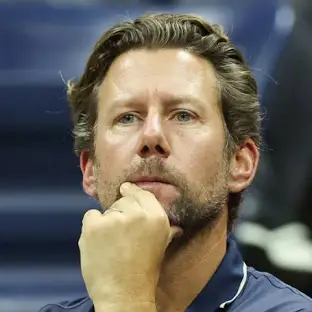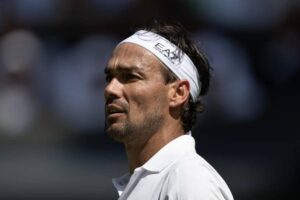
Wim Fissette’s departure from coaching Zheng Qinwen has significant implications for both players’ futures and the broader’s departure from coaching Zheng Qinwen has significant implications for both players’ futures and the broader tennis community. Fissette, celebrated for his success with multiple top-tier players, is now reportedly shifting his focus back to Naomi Osaka as she plans her return to professional tennis. His move reflects the often unpredictable nature of coaching relationships at the elite level, where loyalty, opportunity, and timing frequently collide.
Fissette’s coaching career has been marked by his ability to bring out the best in his players, often leading them to remarkable achievements. He has worked with some of the sport’s greatest champions, including Kim Clijsters, whom he guided to a series of major titles, and Angelique Kerber, with whom he won Wimbledon in 2018. He’s also been instrumental in the successes of Victoria Azarenka and Simona Halep, coaching the latter to a French Open final. Yet, it’s his collaboration with Naomi Osaka that stands out in recent memory. Their partnership, which began at the end of 2019, was marked by two Grand Slam victories: the 2020 U.S. Open and the 2021 Australian Open. This achievement further cemented Fissette’s reputation as a top strategist capable of preparing players for the biggest stages
Despite their initial struggles, Zheng and Fissette seemed to be building momentum, highlighted by Zheng’s triumph at the Palermo Ladies Open and her impressive run to the quarterfinals of the U.S. Open. However, the sudden end to their collaboration was jarring. Zheng expressed feelings of betrayal, noting that Fissette’s departure blindsided her and her team. She mentioned that during the U.S. Open, she sensed a lack of connection but was still taken aback by Fissette’s decision, which she described as “unethical.” The coach’s abrupt departure left Zheng emotionally shaken, underscoring the pressure and complexity of player-coach relationships in professional tennis
Naomi Osaka’s return to the WTA Tour is one of the most anticipated stories in tennis. After announcing her pregnancy in January 2023 and giving birth to her daughter Shai in July, Osaka has expressed her determination to make a robust comeback in 2024, starting with the Australian summer circuit. Her reuniting with Fissette hints at a strategic effort to regain her form and success on the court. Their previous collaboration was characterized by a clear focus on maximizing Osaka’s strengths: her explosive serve and powerful groundstrokes. Given Fissette’s track record, the tennis world will be watching closely to see if this reunion leads to a return to Grand Slam glory for Osaka
Fissette’s move also shines a spotlight on the often-unpredictable coaching dynamics in professional tennis. Unlike team sports, where coaching contracts are typically long-term, tennis coaching partnerships can shift abruptly based on performance, player needs, or personal dynamics. The emotional toll on players like Zheng, who invested deeply in their collaboration, highlights the human aspect of these relationships. Zheng’s disappointment, coupled with Osaka’s hope for a successful return, paints a vivid picture of how intertwined and fragile these professional bonds can be
As Osaka prepares for a demanding 2024 season, Fissette’s strategic expertise will be crucial. Meanwhile, Zheng must now regroup and find a new mentor to continue her rapid ascent in the sport. The tennis world waits to see how these coaching changes will impact the WTA landscape and whether Fissette can once again guide a player to the pinnacle of the game.







